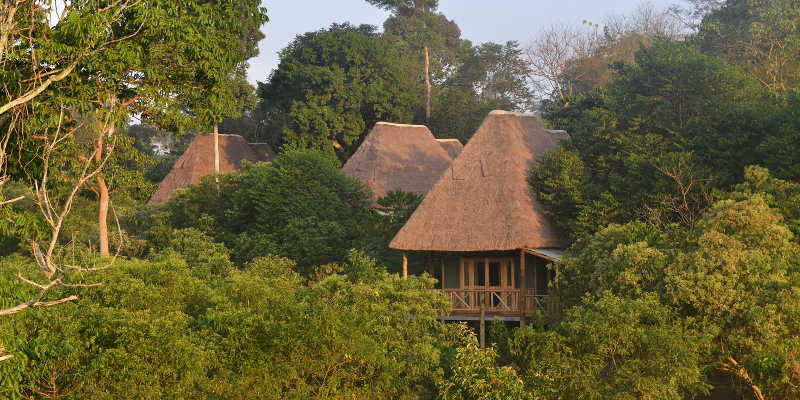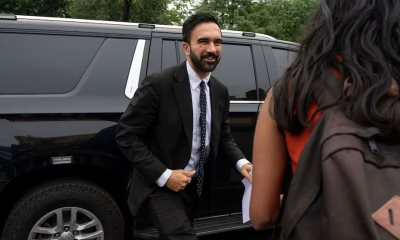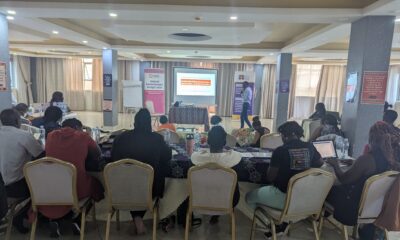News Feature
Bugoma forest; what Uganda risks losing

Bugoma forest lodge
-seen above, and the accompanying tourism activities, couldd be gone if the forest is destroyed
The promoters of Hoima Sugar Limited, the company that was granted approval by the National Environmental Management Authority (NEMA) to destroy part of the 21.3 square kilometres of a protected natural forest for sugarcane growing insists that they are promoting sustainable development.
Through the company’s spokesperson Sheila Nduhukire, the company says that other than destroying the entire 21square km of the forest, they will instead use half of it, which they say is bush and not forest to grow sugarcane.
But their explanations appear to have added fuel to the fire and burning rage across the Ugandan society about the government’s failure to protect the environment.
A group of 45 civil society organizations (CSO’s) recently met and resolved to fight the project in courts of law.
They were supported by the Speaker of Parliament Rebecca Kadaga who spoke out against the destruction of the forest as a blind policy.
Edwin Muhumuza, the Chief Executive Officer of Youth Go Green, one of the CSOs, said that the decision goes against conventional wisdom that forests are the lungs of the earth that produce exygen which supports man’s very existence.
“With its rich diverse wildlife (fauna and flora), the degradation of a part of the forest for sugarcane growth contravenes the United Nations (UN) 2030 Agenda,” said Muhumuza.
Furthermore, Muhumuza reveals that the forest has for generations supported the love for nature among young people through visits.
He argues that it’s destruction will kill morale of doing the same among the youths.
“Young people of Uganda collectively envision forests as resources that should be managed in ways that enable continuous provision for the needs of current and future generations,” says Muhumuza.
“The forest has for generations contributed to Eco-tourism, climate modification, provision of raw materials for domestic craft industries, construction and firewood,” he adds.
Muhumuza says sugarcane growing does not co-exist with sound environmental management, as seen by the situation in Busoga region which experiences frequent dry spells and food shortages.
“We have witnessed cases of food insecurity, labour exploitation and increased poverty levels amongst the sugarcane growing communities. Recently sugarcane farmers in Busoga demonstrated after failing to find market for their sugarcane,” he said.
John Mary Odoi, the Chairman Board of Directors, Climate Action Network Uganda adds that: “There will be loss of Biodiversity as over 260 tree species will eventually disappear. The forest is also a habitant for animals and birds that will eventually disappear; there is likelihood of 23 species of animals and birds losing their homes.”
Odoi further notes that the recent natural calamities like floods and landslides that have hit the country in the past years are attributed to destruction of certain features like forests.
He warns that the Bugoma forest give away is just but a continuation of the trend, that has seen destruction of many natural forests in Ssese Islands for plantation farms.
Odoi argues that the giveaway is a hindrance to the country’s commitment of addressing climate change concerns which include reducing emissions by 22 percent and lowering temperatures.
“One of the contributors to the achievements of these ambitions is to increase tree coverage in order to have carbon gains. However, with Bugoma forest given away we can’t achieve this,” says Odoi.
Proscovia Nanyonjo, a Buganda kingdom official from the Ministry of Lands, Farming and Environment, says:
“Bugoma is not just a bunch of trees or mere forest but a sign of heritage for Uganda. Sugar is not the immediate solution to the problems of climate change we have. We can ably live without sugarcanes and sugar,” says Nanyonjo.
Meanwhile, Hussein Kato Muyinda, the Executive Director, Earth and Rights Initiative says: “Giving away Bugoma forest is violation of basic right to life, this right is not given by anyone apart from God. We know that giving away the forest was an error but it’s not too late to reverse the giveaway.”
Bugoma, is also of great tourism importance.
Bugoma is home to about 600 chimpanzees. It contains the highest density of the Nahan’s Francolin and grey parrot birds among other endangered bird species.
It is also a migratory corridor for large mammals such as elephants, chips which connect to Budongo and Murchison falls National Parks from Queen Elizabeth National park.
Comments


























